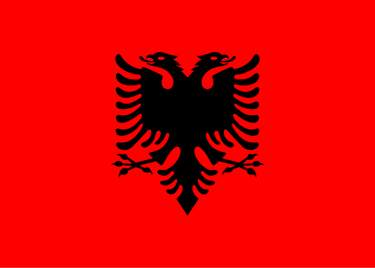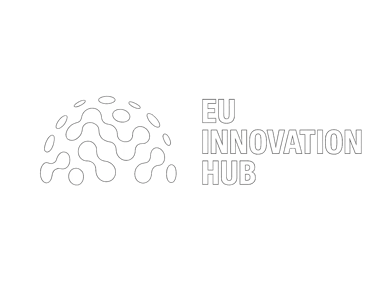COMPLETE ALBANIAN COURSE
SATISFY YOUR THIRST FOR KNOWLEDGE
BECOME FLUENT IN ALBANIAN IN 30 DAYS
Albanian is a difficult language to learn. It’s distinctive features can be found in its Vocabulary, Grammar and Pronunciation, which have evolved independently while incorporating influences from Latin, Greek, Turkish, Italian, and Slavic languages. The challenge with many learning methods is that they only take you part of the way. Mobile apps are fun and motivating, but they often stay on the surface, giving you basic vocabulary without real depth in grammar or conversation. Live courses offer great interaction with teachers but can be inflexible and expensive, making them difficult to sustain long term. University programs are academically rigorous, but they demand years of commitment and come with high living and tuition costs. Textbooks provide structure and clarity, but they lack immersion and often don't provide the practical information that learners actually need.
If you are serious about learning Albanian, commit to a method that makes you actually speak the language. With the right system, you can go beyond memorised phrases and truly speak, read, and think in Albanian. The journey is demanding, but the rewards — access to Albanian and Kosovar news, cinema, music, history, personal connections and work opportunities — are immense. Our official Complete Albanian Master Course that has been designed to give you nothing less than complete fluency.
The time to start learning Albanian is now!


Welcome on behalf of the Albanian Institute!
If you wish to learn Albanian you are in right place. We have created the world's most Complete Albanian Master Course to take you from absolute beginner to native speaker in 30 days. In this section you will find all the information and answers you need about learning Albanian, such as: the best learning methods, reasons to learn this language, difficulty spikes to watch out for, how to improve your language skills if you are stuck in a plateau, as well as the differences and similarities to other commonly spoken languages.
First of all, you should know that Albanian, known as “Shqip” in its native form, is one of the most intriguing and ancient languages in Europe. It belongs to its own unique branch of the Indo-European language family, making it unrelated to any other modern European language in a direct way. Albanian is primarily spoken in Albania and Kosovo, where it holds official status, and it is also widely spoken in North Macedonia, Montenegro, Serbia, and Greece. Moreover, large Albanian-speaking communities exist in Italy, Switzerland, Germany, the United States, and across the global diaspora. Altogether, the number of Albanian speakers is estimated to exceed 7.5 million.

NATURAL METHOD TO LEARN ALBANIAN
Our language course is based on the Natural Method, also known as the Natural Approach, developed by linguist Stephen Krashen and language educator Tracy Terrell. This approach focuses on creating an environment that mimics how individuals naturally acquire their first language, emphasizing comprehension, communication, and a stress-free learning experience.
While other language courses rely on rote memorization and drills, a heavy academic approach to grammar, repetitive exercises, expensive and time-consuming formal tutoring sessions or ineffective and shallow phone apps, we will have you gradually build your language skills like a child learning his/her mother tongue.
There are essentially 5 Core Principles in the Natural Method:
Comprehensible Input (i+1)
Learners acquire a language when they are exposed to materials slightly beyond their current level of understanding (represented as i+1). By hearing or reading content they mostly understand, learners can gradually internalize new vocabulary and grammar structures.Focus on Communication
The Natural Method prioritizes fluency and the ability to communicate over grammatical perfection. Errors are seen as a natural part of the learning process and are not heavily penalised, reducing anxiety and encouraging learners to express themselves.Emotional Element
Emotional factors like anxiety, motivation and enjoyment greatly influence language acquisition. When learners are in a relaxed state, achieved by removing the anxiety linked to the pressure to produce perfect grammar, it is easier for them to get through the initial phase which is arguably the hardest and where most give up. It is also proven to be easier for the brain to absorb and retain new information if the learner is actually interested in the language and its underlying culture, which is why he have included extensive cultural insights, historical and modern pop culture elements in our language course.Stages of Language Acquisition
Scholars have identified the following stages in the language acquisition process of young children:Pre-production: The "silent period," where learners focus on listening and understanding without speaking.
Early Production: Learners begin using simple words and phrases.
Speech Emergence: Learners can construct longer sentences and express ideas more freely.
Intermediate Fluency: Learners develop more complex language skills and can engage in meaningful conversations.
Advanced Fluency: Learners achieve near-native proficiency.
The goal of our courses is thus to mimic the natural language acquisition process without overwhelming the learner with long and tedious lessons but ensuring gradual gains so that he/she remains committed to his/her fluency goal.
Meaningful Interaction
Instead of rote memorization of single words and grammar rules over and over, the Natural Method encourages activities that involve real-world communication to help retain information. This is why we have included storytelling and role-playing scenarios that simulate everyday situations, with exercises that allow the learner to understand his/her current level and thus improve upon specific elements.




EXPAND YOUR KNOWLEDGE
If you are serious about learning Albanian, we recommend that you download the Complete Albanian Master Course.
You will receive all the information available on the website in a convenient portable digital format as well as additional contents: over 15.000 Vocabulary Words and Useful Phrases, in-depth explanations and exercises for all Grammar Rules, exclusive articles with Cultural Insights that you won't find in any other textbook so you can amaze your Albanian friends or business partners thanks to your knowledge of their country and history.
With a one-time purchase you will also get hours of Podcasts to Practice your Albanian listening skills as well as Dialogues with Exercises to achieve your own Master Certificate.
Start speaking Albanian today!
FREQUENTLY ASKED QUESTIONS
Top 5 reasons to learn the Albanian
It's Fun! Join a Unique Club
Albanian is spoken by around 7.5 million people, mainly in Albania, Kosovo, and parts of the Balkans. Despite its wide regional presence, relatively few outsiders learn the language, making it a special and valuable skill. Unlike most European languages, it belongs to its own branch of the Indo-European family, offering a fresh and exciting challenge for language learners.
Gain a Deeper Understanding of European History and Culture
Learning Albanian opens the door to a complex and rich history that has shaped the Balkans for centuries. Albania has been influenced by Illyrians, Romans, Byzantines, Ottomans, and more, yet it has maintained a strong cultural and linguistic identity. From its ancient roots to its modern transformation, understanding Albanian provides insight into a nation with a resilient and unique heritage.
Albanians Appreciate When You Speak Their Language
Albanians are known for their warmth and hospitality, and they take great pride in their language. Even learning a few words can go a long way in making connections, whether you're visiting as a tourist or doing business. A simple Përshëndetje! (Hello!) or Faleminderit! (Thank you!) can instantly create a positive impression.
Visit Albania for an Affordable and Unforgettable Experience
Albania is a hidden gem in Europe, offering stunning natural beauty, from the pristine beaches of the Albanian Riviera to the rugged mountains of the north. The country boasts ancient archaeological sites, Ottoman-era towns, and a vibrant café culture. Best of all, it remains an affordable destination compared to other Mediterranean countries, making it an ideal place to explore.
Business Opportunities in a Growing Economy
Albania has a rapidly developing economy with increasing opportunities in tourism, technology, agriculture, and infrastructure. The country is actively encouraging foreign investment with favorable business policies, a young workforce, and an improving infrastructure. Learning Albanian can be a significant advantage if you're looking to establish business connections or work in the region.


Why learn Albanian?
How difficult is Albanian?
The Foreign Service Institute (FSI) of the United States Department of State classifies Albanian as a Category II language, meaning it is moderately challenging for native English speakers to learn. While it is not as difficult as some East Asian or Arabic languages, it presents unique challenges due to its distinct vocabulary, grammar, and phonetics.
Several factors contribute to the difficulty of learning Albanian for English speakers:
Unfamiliar Vocabulary
Unlike French, German, or Spanish, Albanian does not share many cognates (similar words) with English. As an independent branch of the Indo-European family, its vocabulary has evolved uniquely, making it quite different from other European languages. For example:
Mik (friend) – no resemblance to "friend" in English
E shtunë (Saturday) – distinct from its European counterparts
Sot (today) – no direct link to familiar words
Unique Grammar with Complex Word Structures
Albanian has a rich case system (nominative, accusative, dative, genitive, and ablative) that affects noun endings based on their function in a sentence. While this is fewer than Hungarian’s 18 cases, it still adds complexity for English speakers who are not used to case-based grammar.
Extensive Use of Suffixes and Particles
Albanian is partially agglutinative, meaning that words often take multiple suffixes to indicate tense, possession, or grammatical function. Additionally, definite and indefinite articles are attached to the end of nouns rather than appearing before them, as in English.
Flexible Word Order with Emphasis on Meaning
Although Albanian follows a subject-verb-object structure like English, it allows for a flexible word order depending on emphasis and context. This means learners must focus more on meaning rather than relying on fixed sentence patterns.
Our Albanian language course is designed to maximize your learning efficiency, helping you achieve conversational fluency in just 30 days. Instead of overwhelming you with complex grammar rules all at once, our method builds your language skills gradually, ensuring that you can speak, understand, and engage in real-life conversations from day one.


One of the biggest obstacles to learning Albanian isn’t necessarily the grammar—it’s the lack of comprehensive learning resources that effectively bridge the gap between beginner materials and advanced content. Many learners find themselves stuck after reaching a beginner level because there aren’t enough books, courses, or accessible content that support intermediate and advanced learners.
Unlike languages such as Japanese or Korean, where global pop culture (like anime or K-dramas) has created a huge international demand, Albanian media and culture have not yet reached a global audience in the same way. While Albania and Kosovo have rich musical, literary, and cinematic traditions, their exposure remains mostly regional. As a result, fewer people attempt to learn Albanian, leading to a smaller selection of textbooks, online courses, and language learning tools compared to more widely spoken languages.
This lack of resources is further complicated by the fact that Albanian is primarily spoken in Albania, Kosovo, and parts of the Balkans, with smaller communities in Italy, North Macedonia, Montenegro, Greece, and the Albanian diaspora worldwide. Unlike languages such as Spanish or French, which are spoken across multiple continents, Albanian is more geographically concentrated, making it harder for learners to find immersion opportunities, practice partners, and real-world language exposure outside of Albanian-speaking regions.
We recognize that the lack of quality Albanian learning resources is a major challenge, and our goal is to bridge the gap by creating content that helps learners progress beyond the beginner level. Our platform is dedicated to providing practical lessons, cultural insights, and engaging materials that will allow learners to reach fluency step by step. We focus on real-life usage, interactive learning, and gradual skill-building, so you won’t feel lost once you move past basic vocabulary and grammar.
If you have any suggestions for future lessons or articles, feel free to send them to info@learnalbanian.org—we’d love to hear from you and tailor our content to fit your learning needs!


Why can't I improve in Albanian?
Is Albanian similar to other languages?
Albanian belongs to a unique branch of the Indo-European language family, making it one of the most linguistically distinct languages in Europe. Unlike its neighboring languages, such as Greek, Serbian, and Italian, Albanian does not belong to any of the major Indo-European subfamilies (Slavic, Germanic, or Romance). Instead, it forms its own independent branch, meaning it has no close relatives within the Indo-European family.
Albanian is spoken primarily in Albania, Kosovo, and parts of North Macedonia, Montenegro, Serbia, and Greece, with a significant diaspora in Italy, Switzerland, Germany, and the United States. Unlike many Indo-European languages, Albanian's origins are still debated, but it is widely believed to have evolved from the ancient Illyrian or Thracian languages spoken in the Balkans thousands of years ago.
Over centuries, Albanian has borrowed many words from different languages due to historical interactions, trade, and conquests. Some key influences include:
Latin and Romance Languages (Italian, French, Romanian) -Due to Roman rule and later cultural exchanges, Albanian has absorbed many Latin-origin words, particularly in government, law, and religion.
Shkollë (school) – from Latin schola
Dritare (window) – from Latin fenestra via Romanian fereastră
Kalendar (calendar) – from Latin calendarium
Greek Influence - Due to centuries of interaction with Greek civilization, Albanian contains many words of Greek origin, especially in cultural and religious contexts.
Kisha (church) – from Greek ekklesia
Engjëll (angel) – from Greek angelos
Qiri (candle) – from Greek kērios
Slavic Languages (Serbian, Bulgarian, Macedonian) - Albanian has borrowed words from Slavic languages due to geographic proximity and historical interactions.
Kufomë (corpse) – from Slavic kŭpъma
Fshat (village) – from Slavic selo (though some argue it has an older, Illyrian root)
Rrobat (clothes) – from Slavic ruba
Turkish and Ottoman Influence - During the Ottoman Empire, many Turkish words entered Albanian, particularly in administration, cuisine, and everyday speech.
Çantë (bag) – from Turkish çanta
Pazar (market) – from Turkish pazar
Kazan (cauldron) – from Turkish kazan
English and Modern Borrowings - In recent decades, English has become a major influence in Albanian, particularly in technology, business, and pop culture.
Kompjuter (computer) – from English computer
Internet (internet) – directly borrowed
Menaxher (manager) – from English manager


These are 5 proven methods that we have developed as language learners (not only as teachers!) that will help you achieve complete mastery of the Albanian language:
1. Immerse Yourself Completely
Surround Yourself: Change the language of your phone, computer, tv, console, news sources, radio stations, song playlists and streaming apps to the language you want to learn.
Engaging Content: Listen to native music, watch original movies, learn about the culture and history of the country on Youtube. This will help you stay motivated and reduce the initial frustration.
Make Mistakes: Travel to the country where the language is spoken and don't be afraid to engage with the locals. People will be amazed at your efforts to learn their language.
2. Focus on the Most Useful Words and Phrases
Study Efficiency: Learn the top 2,000 words in the language, as they often cover 80-90% of everyday conversations. Learning takes time but that doesn't mean it has to take very long to see results.
Real Conversations: Start by practising with common phrases you'll actually use in real-life situations, like greetings, ordering food, asking for directions, etc.
3. Use Memorization Techniques
Spaced Repetition: Our Courses are based on spaced spaced repetition systems (SRS) to help you memorize words and grammar in the long term and with miminal effort by showing them to you in progression.
Mnemonic Devices: trick your brain and speed up the learning process by trying to think of an example or "story" for each new word / expression you struggle to remember.
4. Learn the Language based on the Context
Practice Makes Perfect: Remember that your grammar doesn't have to be perfect as long as you can be understood! There is no shame in using simple phrases to get you point across.
Shadowing Technique: Repeat in your head after native speakers in real-time while listening or watching videos with original subtitles to improve your comprehension.
5. Consistency is Everything
Daily Practice: Even just 30 minutes a day is more effective than sporadic, long day study sessions. Take breaks often when reading and always have fun to increase productivity.
Compound Results: Small, achievable goals like reading 5 pages daily, or even just watching a movie or playing a videogame every evening produce results over time if you don't see them immediately.


How to become fluent in Albanian?
Is Albanian also spoken in Kosovo?
Yes, Albanian is the official and most widely spoken language in Kosovo. The vast majority of Kosovo's population is ethnically Albanian, and the language is used in government, education, media, and daily life.
Albanian is divided into two main dialect groups:
Gheg (spoken in northern Albania, Kosovo, Montenegro, North Macedonia, and parts of Serbia)
Tosk (spoken in southern Albania, as well as in Greece, Italy, and parts of Turkey)
The Albanian spoken in Kosovo is primarily Gheg, whereas the official Standard Albanian is based on the Tosk dialect (which is used in Albania’s government, education, and media). This means that Kosovars naturally speak Gheg in daily life but often switch to Standard Albanian in formal contexts.
Pronunciation Differences
Gheg (Kosovo Albanian) often drops unstressed vowels, leading to shorter word forms.
Example:
"kam qenë" (I have been) → "kam kon" (Kosovo dialect)
Gheg has nasalized vowels, while Tosk does not.
Example:
The word for "I" is "unë" in Tosk but "une" / "un" in Gheg.
Vocabulary Differences
Kosovo Albanian contains many words influenced by Serbian, Turkish, and sometimes Bosnian, while Albanian in Albania has absorbed more Italian and Greek loanwords.
For example, in Kosovo, people commonly use "filxhan" (borrowed from Turkish) for "cup," whereas in Albania, the preferred word is "gotë." Similarly, "torbë" (borrowed from Serbian "torba") is used for "school bag" in Kosovo, while in Albania, it is "çantë" (borrowed from Italian "canta"). The word for "bicycle" in Kosovo is "bicikletë," influenced by Serbian "bicikla," while in Albania, the pronunciation shifts slightly to "biçikletë."
In casual conversation, Kosovars often say "Tungjatjeta" or the shortened "Tung" for "goodbye," whereas in Albania, the formal "Mirupafshim" is more common. Additionally, Kosovars often use "punë" for "work," while Albanians tend to say "puna."
Grammar Differences
Gheg (Kosovo Albanian) retains more archaic features, while Tosk has undergone more grammatical simplifications.
In Kosovo, people often use “asht” (is) instead of “është”, which is used in Standard Albanian.
Gheg uses "ken" (been) instead of "qenë".
Examples:
Kosovo (Gheg): "Ai ka ken atje dje." → (He has been there yesterday.)
Albania (Tosk): "Ai ka qenë atje dje."




EXPAND YOUR KNOWLEDGE
If you are serious about learning Albanian, we recommend that you download the Complete Albanian Master Course.
You will receive all the information available on the website in a convenient portable digital format as well as additional contents: over 15.000 Vocabulary Words and Useful Phrases, in-depth explanations and exercises for all Grammar Rules, exclusive articles with Cultural Insights that you won't find in any other textbook so you can amaze your Albanian friends or business partners thanks to your knowledge of their country and history.
With a one-time purchase you will also get hours of Podcasts to Practice your Albanian listening skills as well as Dialogues with Exercises to achieve your own Master Certificate.
Start speaking Albanian today!






